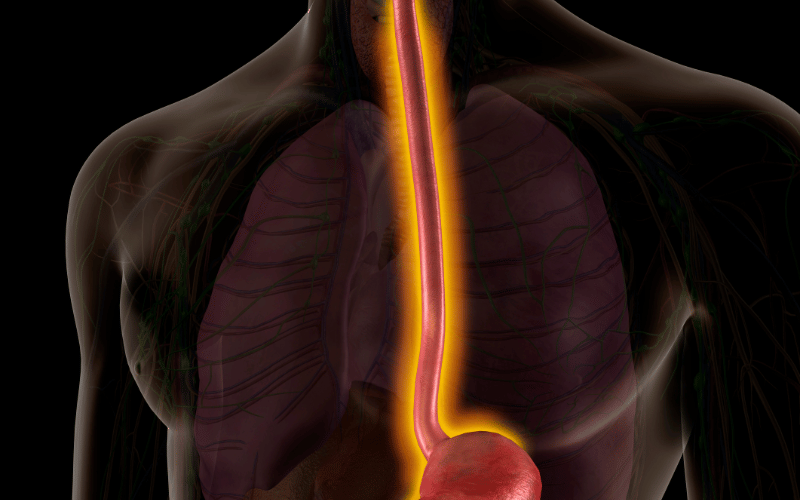Cause 9: Esophageal Issues

The esophagus is a critical component of the digestive system. This muscular tube, stretching from the throat to the stomach, ensures that the food we consume reaches its destination for further digestion. However, various conditions and diseases can afflict the esophagus, leading to potential complications, including the presence of blood in stool due to ingested blood.
Esophageal varices are a significant concern, especially for those with liver conditions. These are enlarged veins in the walls of the lower part of the esophagus. Often linked with severe liver diseases like cirrhosis, these veins are prone to bleeding due to their thin walls. When they rupture, the bleeding can be significant. If the blood is ingested into the stomach and intestines, it can eventually manifest as dark, tarry stools, a condition known as melena. Recognizing the early signs, such as vomiting blood or black stools, can be crucial for timely medical intervention.
Another esophageal issue that can result in blood in the stool is the Mallory-Weiss syndrome. This condition involves tears in the mucous membrane lining the junction of the esophagus and the stomach. Often precipitated by intense episodes of vomiting, these tears can lead to bloody vomit. If this blood is swallowed and processed through the digestive system, it can result in bloody stools. While these tears might sound alarming, many heal on their own without intervention. However, monitoring is essential to ensure there aren’t complications or excessive bleeding.
Esophageal cancer, though rarer, is another potential source of blood in the stool. The early stages of this cancer may be asymptomatic, meaning individuals might not experience any discernible symptoms. As the disease progresses, symptoms such as difficulty swallowing, unexplained weight loss, and chest pain may surface. If the cancerous growth bleeds, and this blood is ingested, it can, over time, appear in the stool. Early detection of esophageal cancer greatly improves treatment outcomes, emphasizing regular check-ups, especially if one has risk factors such as prolonged acid reflux or a history of smoking.
For those grappling with esophageal conditions, treatment pathways can vary. Esophageal varices might be managed with medications or specific procedures to minimize bleeding risk. Tears from Mallory-Weiss syndrome might require endoscopic treatment if bleeding is heavy, but many heal without direct intervention. Esophageal cancer, on the other hand, demands a more aggressive approach, possibly involving surgery, chemotherapy, or radiation. Regardless of the specific issue, if there’s any suspicion of an esophageal problem, especially if blood is present in vomit or stool, prompt medical consultation is paramount. (9)